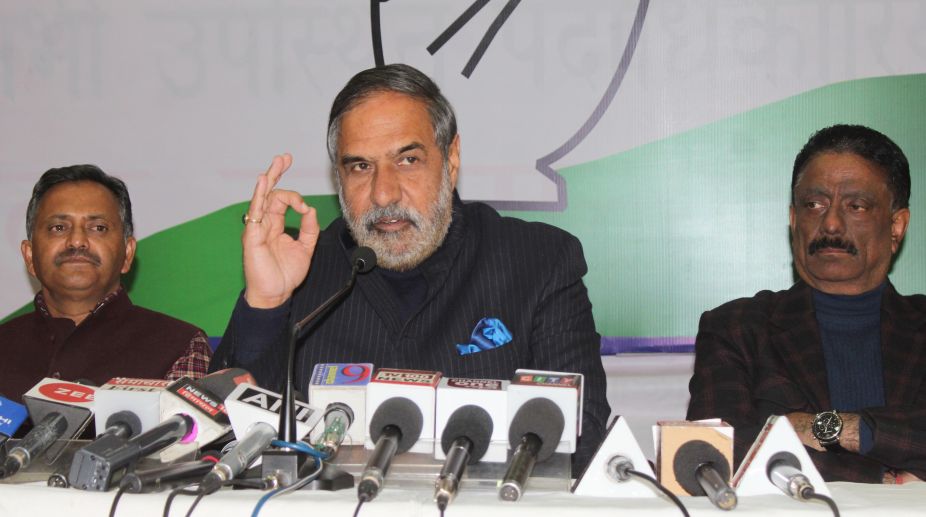Cong’s claim of south being alien territory for BJP is hogwash: Shehzad
Speaking to The Statesman in an exclusive interview, the BJP spokesperson said his party has been responsible to take 25 crore people of the country out of poverty.

Anand Sharma (Photo: SNS)
The Congress on Tuesday said the allegations levelled by the BJP against former Union Finance Minister P. Chidambaram of favouring select private traders through 80:20 gold import scheme were “false” and “baseless”.
Addressing media persons outside Parliament, senior Congress leader Anand Sharma said the Narendra Modi government was even “manufacturing documents” to tarnish the image of its political opponents as a “diversionary tactic to avoid focus from around Rs 27,000 crore fraud by Nirav Modi, Mehul Choksi and Jatin Mehta”.
He said that “no files were signed” on May 16, 2014, as alleged by Union Law Minister Ravi Shankar Prasad.
Advertisement
Sharma emphasized that firstly the Exim policy is not the Finance Minister’s prerogative alone, and secondly that no policy decisions could be taken when the Model Code of Conduct was still in place.
He said there were only two circulars issued by the Reserve Bank of India (RBI) on the 80:20 policy, and both were issued in 2013 about a month apart.
“If there is any other circular or document related to this scheme, the BJP and the government must show it. As far as we know, there are only these two RBI circulars and no circular on May 16 as is being falsely claimed by the government,” the Congress leader said, flaunting the papers.
The Bharatiya Janata Party (BJP) has alleged that Chidambaram as Finance Minister had granted seven private firms — including the Gitanjali Gems that is accused in a multi-crore PNB scam — gold import benefits on May 16, 2014, the day the results of Lok Sabha polls were announced.
Sharma said the restrictions were placed on import of gold — known as the 80:20 scheme — at a time when huge imports of gold were putting strain on country’s foreign exchange as well as the Current account Deficit (CAD) as the oil prices were raging between $105-$127 per barrel in the international market.
“India had incurred a bill of $190 billion for oil imports the previous year. The massive gold imports were putting extra burden on foreign exchange reserves. So it was decided to put some curbs on gold imports,” Sharma, a former Commerce and Industry Minister, said.
“Thus it was decided that 80 per cent of the imported gold would go to jewellery manufacturers while the 20 per cent would mandatorily go to the gold exporters who export after value addition. This is known as the 80:20 scheme.”
He said that initially only large public sector banks, primarily the SBI, the SSTC and MMTC (Metals and Minerals Trading Corporation) were allowed to import gold but it led to a shortage in the market and subsequently some private “premium” firms were also allowed to import gold but under strict checks and balances.
“The RBI has all the records which firms were allowed and what was their credibility,” Sharma said.
Advertisement